Are you looking to craft the perfect letter to land that project management job? A well-structured application can make all the difference in showcasing your skills and experience. In this article, we'll walk you through a compelling letter template that highlights your project management achievements while capturing the attention of potential employers. So, if you're ready to elevate your job application game, keep reading to discover our expert tips!

Professional Summary
Dynamic project manager with over seven years of experience in leading diverse teams to deliver complex projects on time and within budget. Proven expertise in methodologies such as Agile and Waterfall, facilitating successful project execution across industries including technology, healthcare, and construction. Comprehensive knowledge of project management tools like Microsoft Project and Trello, enabling effective planning, tracking, and reporting. Strong analytical skills for risk assessment and mitigation, along with exceptional communication abilities to liaise with stakeholders at various levels. Commitment to fostering team collaboration and driving process improvements to enhance project performance and achieve organizational goals.
Relevant Project Management Skills
Effective project management requires a variety of essential skills, including communication, organization, and problem-solving. Effective communication ensures that all stakeholders, such as team members and clients, are informed and aligned on project goals and progress. Organizational skills are vital for maintaining timelines, resources, and task priorities, allowing project managers to keep projects on track and within budget. Problem-solving skills are essential for navigating challenges that arise during a project's lifecycle, enabling project managers to identify solutions quickly and efficiently. Tools such as Gantt charts and project management software like Microsoft Project or Trello further enhance these skills by providing visual outlines and task management capabilities. Experience with Agile methodologies, such as Scrum, enhances adaptability, allowing project managers to respond swiftly to changing project requirements.
Achievements and Success Metrics
In project management, successful execution leads to notable achievements and measurable success metrics. For instance, the project completion rate can exceed 95% within agreed timelines, demonstrating effective planning and resource allocation processes. Cost savings of approximately 20% often result from strategic procurement and contract negotiations. Team engagement scores can reach over 80% in employee satisfaction surveys, reflecting strong leadership and communication. Furthermore, project delivery can enhance customer satisfaction ratings by 30%, underscoring the importance of stakeholder management. Each of these metrics, tracked through KPIs (Key Performance Indicators), illustrates a track record of success in delivering high-quality outcomes and fostering team collaboration in dynamic environments.
Project Management Tools Proficiency
Proficiency in Project Management Tools significantly enhances the efficiency of managing projects in various industries, including software development, construction, and marketing. Familiarity with tools like Microsoft Project, Trello, and Asana enables professionals to effectively plan tasks, allocate resources, and track progress. For instance, Microsoft Project allows users to create Gantt charts, facilitating project scheduling and monitoring over time, while Trello utilizes a card-based system for task organization, promoting collaboration among team members. Asana, known for its user-friendly interface, supports task assignment and deadline tracking, catering to diverse team sizes and project scopes. Mastery of these tools often results in improved communication, increased productivity, and successful project delivery within estimated budgets and timelines.
Team Leadership and Communication Skills
Effective team leadership is crucial in project management environments, significantly enhancing project outcomes. Strong communication skills foster collaboration among team members, ensuring all stakeholders, including clients and upper management, are aligned with project goals. In high-velocity settings, like information technology (IT) and construction industries, it is essential to cultivate a positive team culture that encourages open dialogue and feedback. Methodologies such as Agile and Waterfall necessitate clear communication of expectations, deadlines, and performance metrics. Regular meetings and updates can reinforce team cohesion and motivation, ultimately driving successful project completion within defined timelines and budgets. Investing in team development through training workshops, mentoring, and conflict resolution enhances overall productivity and reduces turnover rates.
Letter Template For Project Management Experience Job Application Samples
Letter template of project management experience for corporate job application
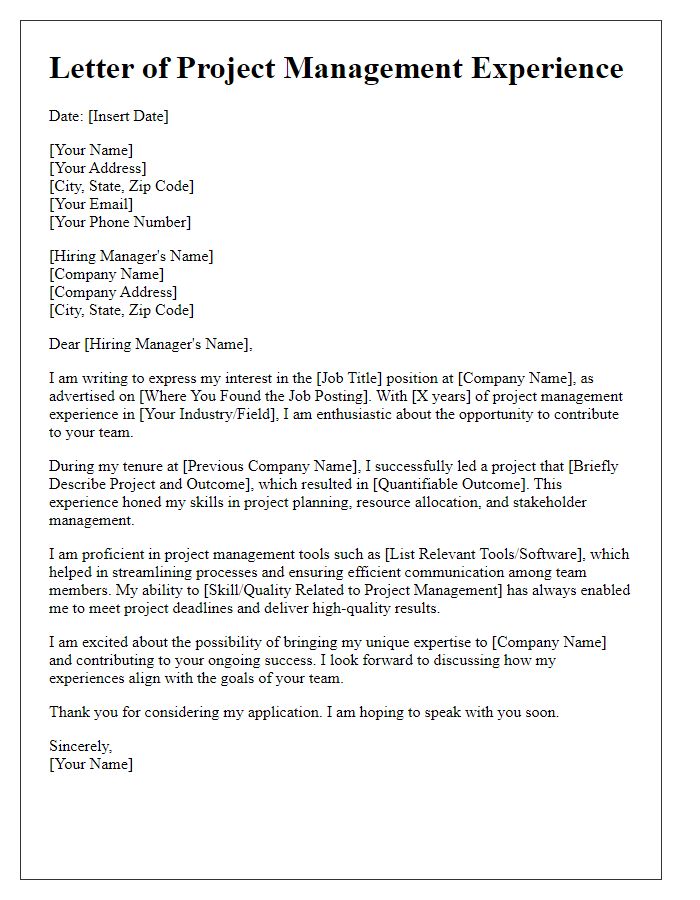
Letter template of project management experience for nonprofit organization application
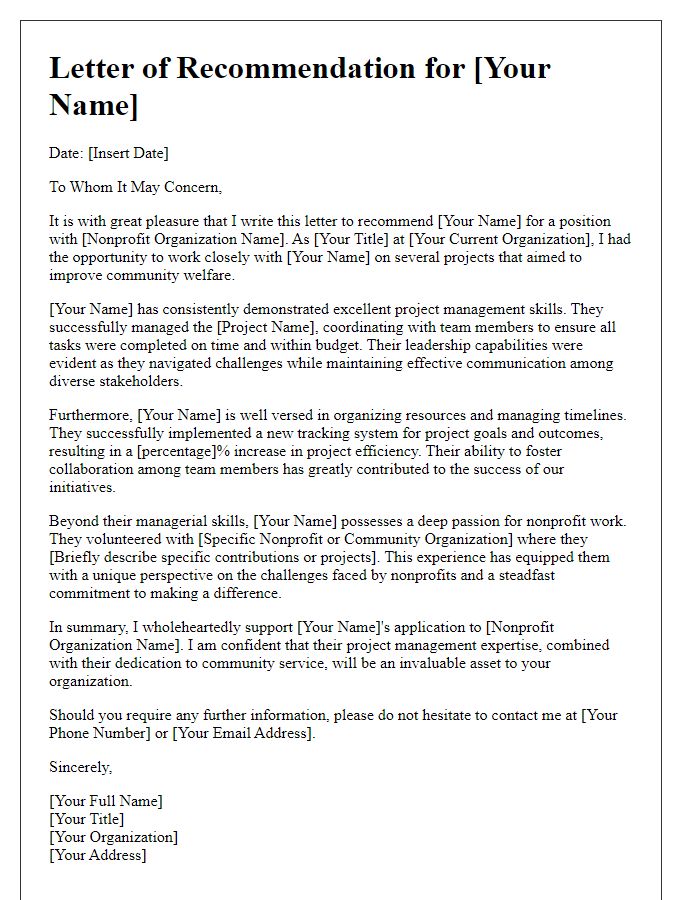
Letter template of project management experience for government position application
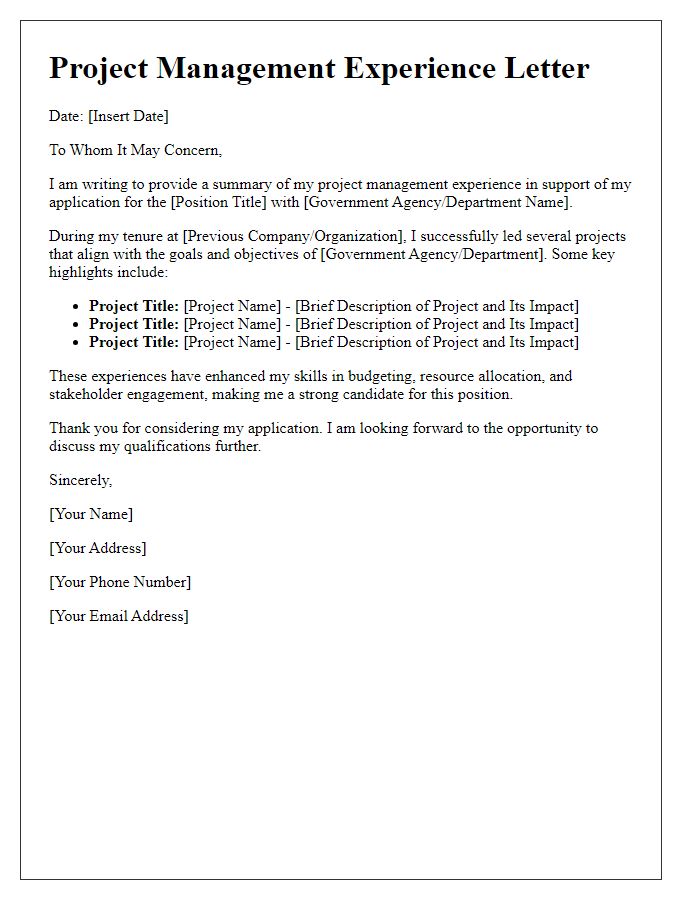
Letter template of project management experience for remote work application
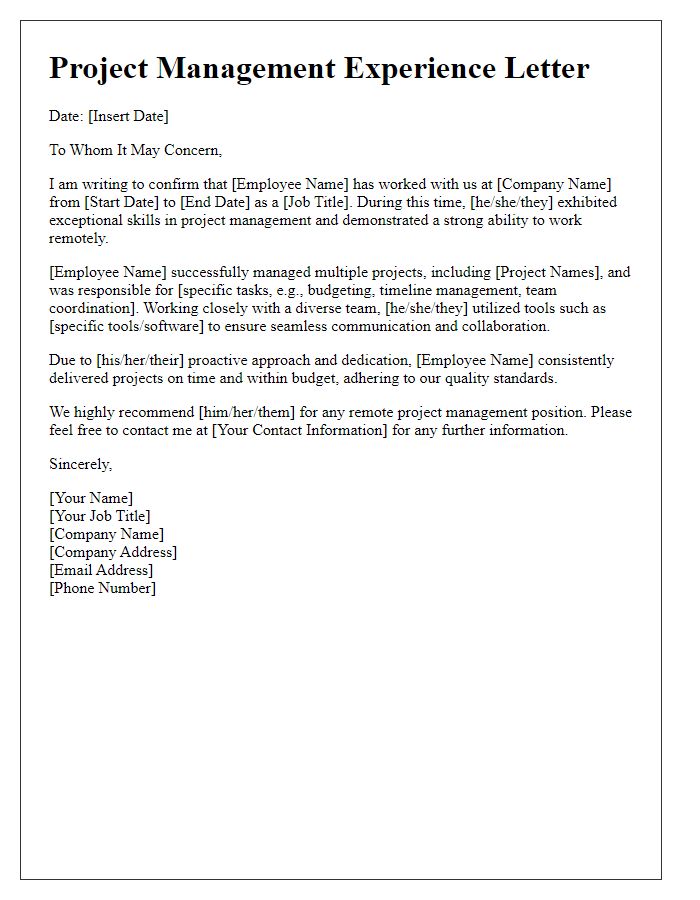
Letter template of project management experience for international job application
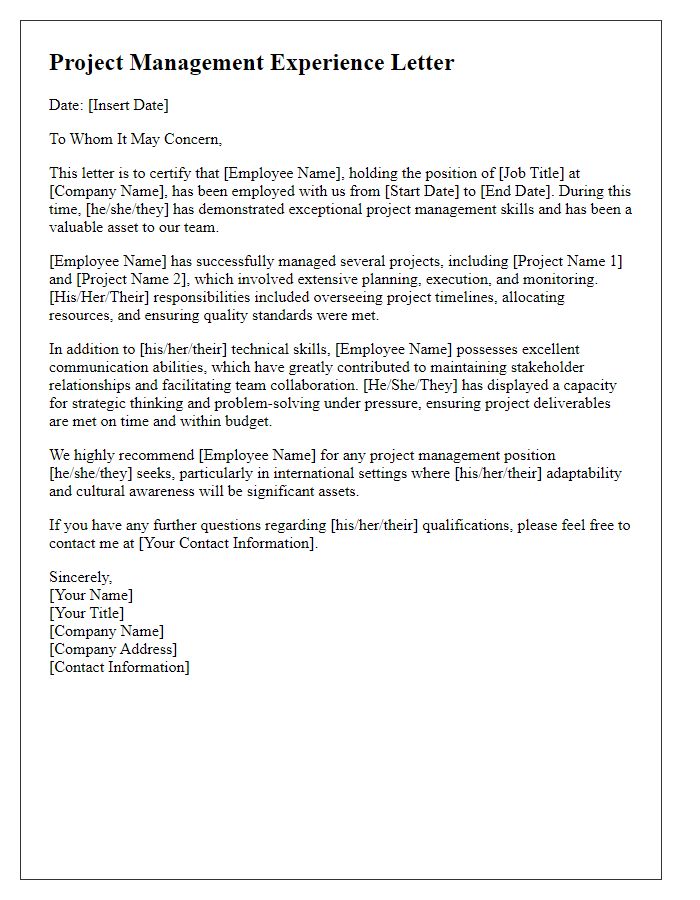
Letter template of project management experience for startup company application
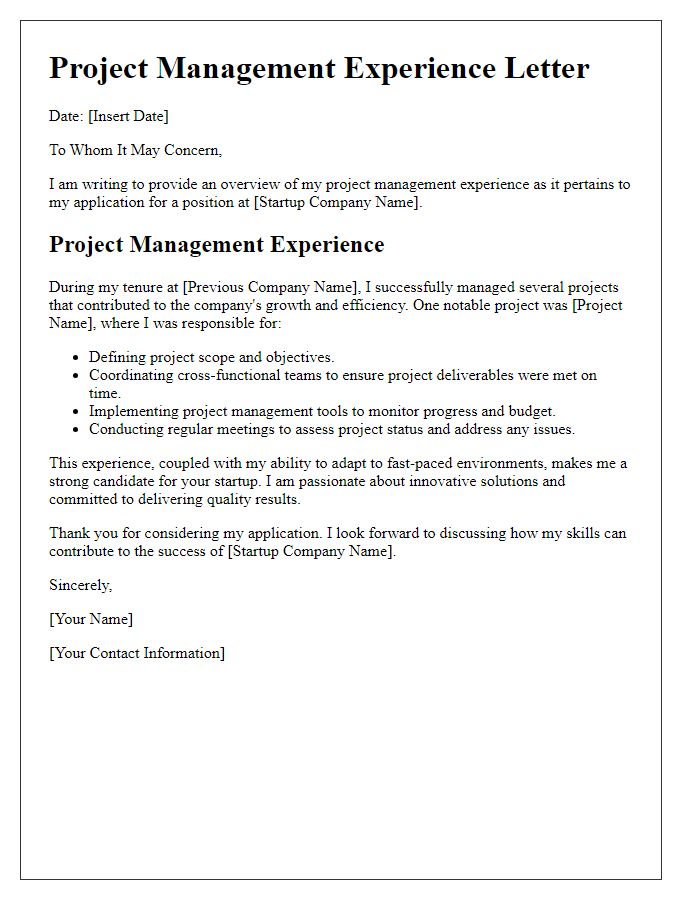
Letter template of project management experience for senior management position application
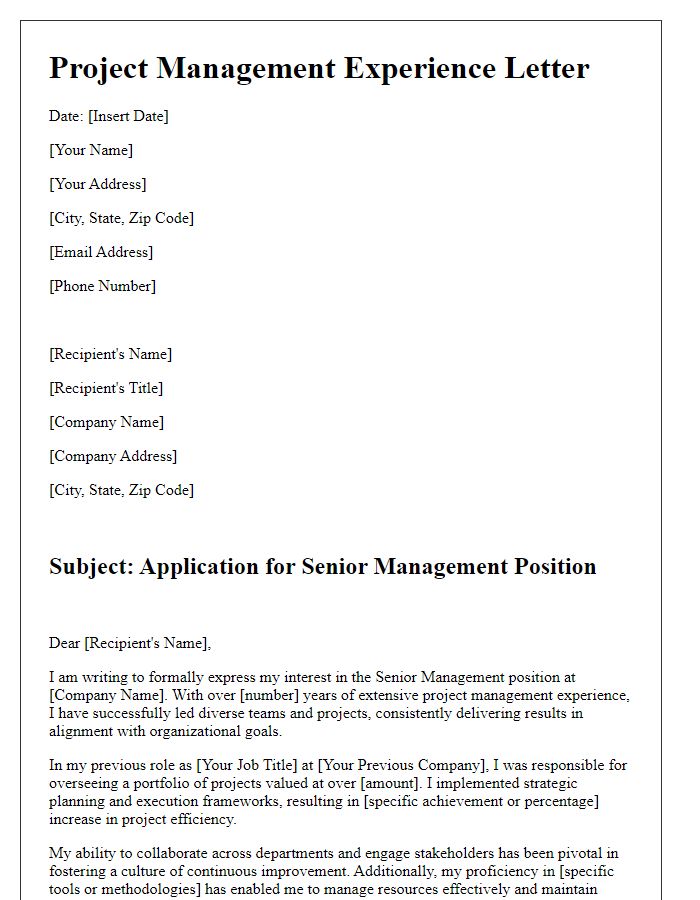
Letter template of project management experience for entry-level position application
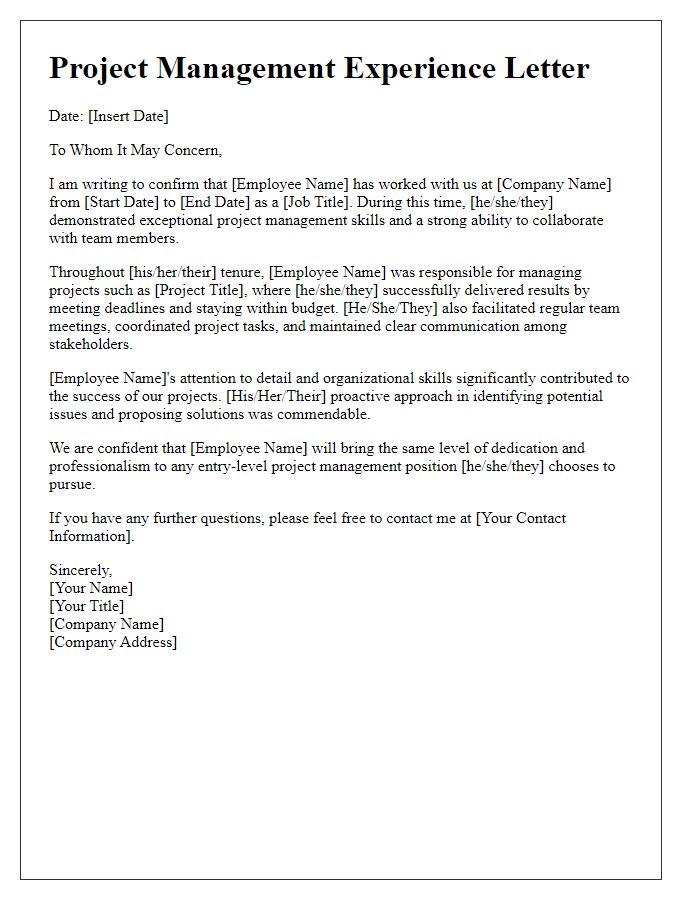
Letter template of project management experience for freelance project proposal
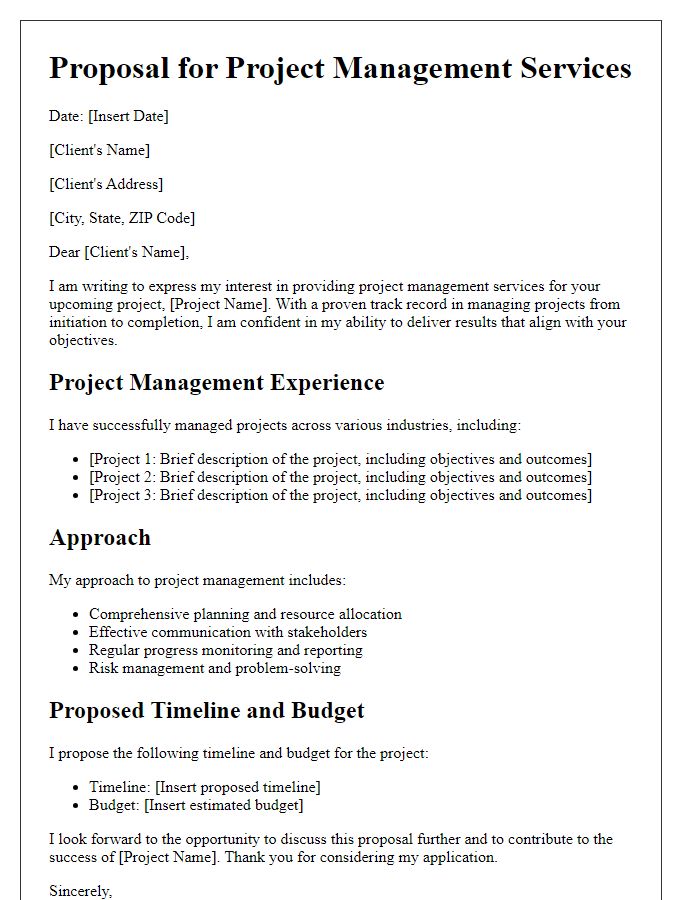

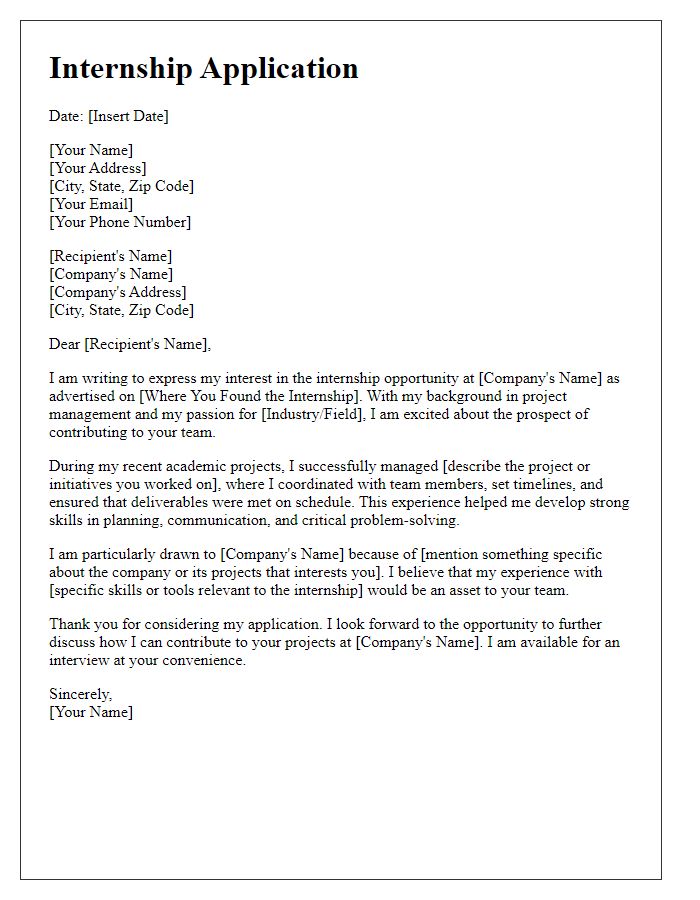


Comments